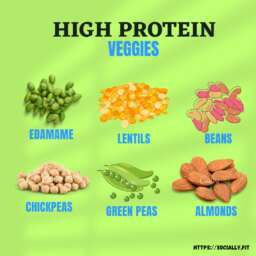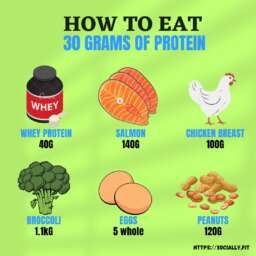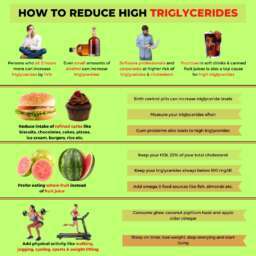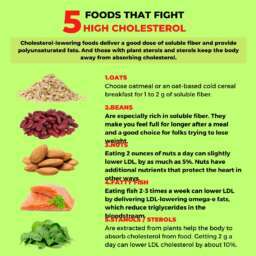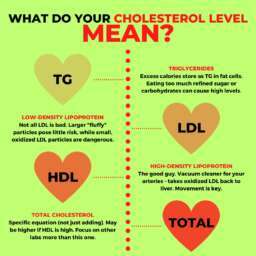Is Creatine Pre Workout? Benefits, Dosage, and More.
Discover if creatine is suitable as a pre-workout supplement. Learn about its benefits, recommended dosage, and how it can enhance your performance and results at the gym.
Introduction

Are you curious about creatine and whether it’s a good pre-workout supplement? You’re not alone! Many fitness enthusiasts swear by creatine to enhance their workout performance. In this article, we’ll dive deep into what creatine is, how it works, and why taking it before your workout might be the boost you need.
What is Creatine?
Creatine is a natural substance found in muscle cells. It helps produce energy during high-intensity exercise and heavy lifting. You can get creatine from certain foods like red meat and fish, but many people choose to take it as a supplement to maximize its benefits.
10 Types of Creatine

- Creatine Monohydrate: Most common and researched; great for beginners.
- Creatine Ethyl Ester: Claimed to be more efficiently absorbed.
- Buffered Creatine: Designed to reduce stomach discomfort.
- Liquid Creatine: Easy to take but less stable over time.
- Creatine Magnesium Chelate: Combined with magnesium for better absorption.
- Creatine Hydrochloride (HCL): Highly soluble and requires a smaller dose.
- Creatine Nitrate: Linked with improved nitric oxide levels for better blood flow.
- Micronized Creatine: Smaller particles for faster absorption and less bloating.
- Creatine Malate: Combines creatine with malic acid, enhancing energy production.
- Creatine Pyruvate: Combines creatine with pyruvic acid, promoting aerobic performance.
Each type offers unique benefits, so choose based on your specific needs and preferences.
How Creatine Works
| Mechanism | Description |
|---|---|
| ATP Production | Increases ATP availability, boosting energy for high-intensity exercises. |
| Phosphocreatine Stores | Enhances phosphocreatine stores in muscles, aiding quick energy release. |
| Muscle Hydration | Draws water into muscle cells, promoting growth and volume. |
| Protein Synthesis | Stimulates pathways that support muscle protein synthesis and growth. |
| Reduction of Protein Breakdown | Reduces the breakdown of muscle proteins, aiding recovery and maintenance. |
| Increased Training Intensity | Allows for more intense and longer training sessions. |
| Buffering Capacity | Reduces the buildup of lactic acid, delaying muscle fatigue. |
| Neurological Benefits | Supports brain function and may enhance cognitive performance. |
| Hormonal Effects | Can increase the levels of certain anabolic hormones, such as IGF-1. |
| Recovery Improvement | Accelerates recovery post-exercise by replenishing energy stores. |
Tips on How Creatine Works
- Boosts Energy: Creatine enhances ATP production, giving you more energy for intense workouts.
- Quick Energy Release: By increasing phosphocreatine stores, creatine provides quick energy bursts.
- Promotes Muscle Growth: Draws water into muscles, leading to increased size and strength.
- Supports Muscle Building: Stimulates protein synthesis pathways, aiding muscle growth.
- Aids Recovery: Reduces muscle protein breakdown, helping with faster recovery.
- Increases Workout Intensity: Enables more intense and prolonged training sessions.
- Delays Fatigue: Buffers lactic acid buildup, allowing for longer exercise durations.
- Cognitive Benefits: May enhance brain function, benefiting mental performance.
- Hormonal Boost: Increases anabolic hormones, promoting muscle growth and recovery.
- Speeds Up Recovery: Replenishes energy stores quickly, aiding in post-workout recovery.
10 Benefits of Taking Creatine Pre-Workout

- Increased Strength: Enhances your lifting power.
- Better Endurance: Prolongs workout duration.
- Faster Recovery: Reduces muscle soreness post-exercise.
- Enhanced Energy: Boosts ATP levels for more energy.
- Greater Muscle Mass: Promotes muscle growth.
- Improved Performance: Elevates overall workout efficiency.
- Reduced Fatigue: Delays the onset of fatigue.
- Increased Focus: May improve mental clarity during workouts.
- More Reps: Enables more repetitions in sets.
- Higher Intensity: Supports higher intensity training sessions.
10 Potential Side Effects of Creatine
- Water Retention: May cause temporary weight gain.
- Bloating: Some users experience stomach bloating.
- Muscle Cramps: Potential for occasional muscle cramps.
- Digestive Issues: Can cause upset stomach or diarrhea.
- Kidney Stress: Rarely, excessive use may stress kidneys.
- Dehydration: Increases risk if not properly hydrated.
- High Blood Pressure: Possible increase in blood pressure.
- Heat Intolerance: May reduce tolerance to high temperatures.
- Electrolyte Imbalance: Affects mineral balance in the body.
- Headaches: Some users report mild headaches.
Ideal Dosage of Creatine
| Phase | Dosage | Duration | Frequency | Purpose |
|---|---|---|---|---|
| Loading Phase | 20 grams per day (4 x 5 grams) | 5-7 days | Daily | Rapidly saturate muscles with creatine |
| Maintenance Phase | 3-5 grams per day | Ongoing | Daily | Maintain high levels of muscle creatine |
| Pre-Workout | 3-5 grams | 30-60 minutes before workout | Workout days | Enhance performance and energy levels |
| Post-Workout | 3-5 grams | Immediately after workout | Workout days | Aid recovery and muscle growth |
| Non-Workout Days | 3-5 grams | Throughout the day | Non-workout days | Maintain creatine levels |
Analysis
- Loading Phase: Start with a loading phase of 20 grams per day divided into four doses for the first 5-7 days to quickly saturate your muscles with creatine.
- Maintenance Phase: Follow the loading phase with a maintenance dose of 3-5 grams per day to keep your muscles saturated.
- Pre-Workout Timing: Taking 3-5 grams of creatine 30-60 minutes before your workout can enhance your performance and energy levels.
- Post-Workout Dose: Consuming 3-5 grams immediately after your workout can help with muscle recovery and growth.
- Consistency on Non-Workout Days: Maintain a daily intake of 3-5 grams even on rest days to keep your muscle creatine levels steady.
Sticking to these dosage guidelines can maximize the benefits of creatine while minimizing potential side effects.
Pre-Workout vs. Post-Workout
| Aspect | Pre-Workout | Post-Workout |
|---|---|---|
| Timing | Before exercise | After exercise |
| Purpose | Boost energy and performance during workout | Aid recovery and muscle repair after workout |
| Energy Levels | Increases energy levels for immediate use during workout | Helps replenish energy stores depleted during workout |
| Muscle Strength | Enhances strength and power output during exercise | Supports muscle recovery and growth post-exercise |
| Muscle Soreness | May reduce perception of muscle soreness during workout | Helps alleviate muscle soreness after workout |
| Hydration | Enhances muscle hydration, potentially reducing cramping | Assists in rehydration post-exercise |
| Nutrient Delivery | Facilitates nutrient delivery to muscles during exercise | Enhances nutrient uptake for muscle repair and growth |
| Protein Synthesis | May stimulate protein synthesis during workout | Supports protein synthesis and muscle repair post-exercise |
| Fatigue Delay | Delays onset of fatigue during exercise | Helps prevent excessive fatigue post-exercise |
| Recovery Time | Shortens recovery time between sets during workout | Speeds up overall recovery time after workout |
| Anabolic Environment | Creates an anabolic environment for muscle growth | Maintains an anabolic state for optimal muscle repair |
Analysis
- Timing Benefits: Pre-workout creatine boosts immediate energy, while post-workout creatine aids in recovery.
- Energy Enhancement: Pre-workout creatine enhances energy levels for intense workouts, while post-workout helps replenish depleted energy stores.
- Muscle Strength: Pre-workout creatine improves strength during exercise, while post-workout supports muscle repair and growth.
- Soreness Reduction: Pre-workout creatine may reduce muscle soreness perception, while post-workout helps alleviate soreness.
- Hydration Support: Pre-workout creatine enhances muscle hydration, potentially reducing cramping, while post-workout assists in rehydration.
- Nutrient Delivery: Pre-workout creatine facilitates nutrient delivery to muscles during exercise, while post-workout enhances nutrient uptake for repair.
- Protein Synthesis: Pre-workout creatine may stimulate protein synthesis during exercise, while post-workout supports protein synthesis for muscle repair.
- Fatigue Management: Pre-workout creatine delays fatigue during exercise, while post-workout helps prevent excessive fatigue.
- Recovery Assistance: Pre-workout creatine shortens recovery time between sets, while post-workout speeds up overall recovery.
- Anabolic Environment: Pre-workout creatine creates an anabolic environment for muscle growth, while post-workout maintains an anabolic state for repair.
How to Take Creatine Pre-Workout
How to Take Creatine Pre-Workout: Step-by-Step Guide
- Choose Creatine Monohydrate: Opt for creatine monohydrate, the most researched and effective form.
- Select the Right Dosage: Determine your dosage based on your body weight and workout intensity.
- Mix with Water or Juice: Mix your creatine powder with water or a carbohydrate-rich juice for better absorption.
- Timing: Take your creatine 30-60 minutes before your workout for optimal results.
- Stir Well: Ensure the creatine powder is fully dissolved in the liquid before consuming.
- Consume Regularly: Take creatine consistently on workout days, even on rest days, to maintain saturation levels in your muscles.
- Stay Hydrated: Drink plenty of water throughout the day, especially when taking creatine, to prevent dehydration.
- Pair with Carbohydrates: Consider pairing your creatine with carbohydrates to enhance its uptake into your muscles.
- Avoid Caffeine: If possible, avoid consuming caffeine alongside creatine, as it may interfere with its absorption.
- Monitor Effects: Pay attention to how your body responds to creatine pre-workout and adjust your dosage or timing accordingly for the best results.
Creatine and Different Workouts

- Strength Training: Creatine enhances power and strength, beneficial for lifting heavier weights in exercises like squats and deadlifts.
- High-Intensity Interval Training (HIIT): Supports performance during short bursts of intense activity followed by rest periods, aiding in overall workout capacity.
- Endurance Running: While primarily known for its benefits in short bursts of activity, creatine may also improve endurance in longer-distance running by enhancing energy availability.
- Circuit Training: Helps sustain energy levels throughout a circuit of various exercises, promoting consistent performance from start to finish.
- CrossFit Workouts: Creatine can benefit CrossFit athletes by improving strength, power, and endurance across the diverse range of movements and intensities in CrossFit workouts.
- Bodyweight Exercises: Enhances performance in bodyweight exercises such as push-ups, pull-ups, and lunges, allowing for more reps or sets.
- Swimming: Supports muscle contraction and energy production during swimming sessions, aiding in speed and endurance in the water.
- Cycling: Improves power output during cycling sprints or hill climbs, contributing to better overall cycling performance.
- Sports Specific Training: Whether it’s basketball, soccer, or tennis, creatine can enhance performance in sport-specific drills and exercises by improving strength, power, and recovery.
- Plyometric Exercises: Boosts explosive power in exercises like box jumps, jump squats, and plyometric push-ups, helping athletes generate more force rapidly.
Creatine’s ability to increase energy availability and support muscle contraction makes it valuable across a wide range of workout types, from strength training to endurance activities.
10 Myths About Creatine

- Creatine Causes Kidney Damage: False. Numerous studies have shown that creatine supplementation, when taken within recommended dosages, does not pose any risk to kidney health.
- Creatine is a Steroid: Incorrect. Creatine is a naturally occurring compound found in foods like meat and fish, and it is not a steroid.
- Creatine Only Benefits Bodybuilders: Misleading. While creatine is popular among bodybuilders, it can benefit individuals involved in various sports and activities, including endurance athletes and recreational gym-goers.
- Creatine is Unsafe for Teenagers: Not necessarily. Research suggests that creatine supplementation is safe for teenagers when used appropriately and under proper supervision.
- Creatine Causes Cramping and Dehydration: Untrue. Studies have debunked the myth that creatine causes cramping or dehydration when taken in recommended amounts and with adequate hydration.
- Creatine Should Only be Taken by Men: False. Both men and women can safely take creatine supplements to improve their performance and muscle strength.
- Creatine Leads to Weight Gain from Fat: Incorrect. Creatine can cause temporary water retention in muscles, leading to slight weight gain, but it does not cause fat gain.
- Creatine is Addictive: False. Creatine is not addictive and does not lead to dependence or withdrawal symptoms when discontinued.
- Creatine Should Only be Taken by Serious Athletes: Not true. Creatine can benefit individuals of all fitness levels, from beginners to elite athletes, seeking to improve their performance or muscle mass.
- Creatine Doesn’t Work for Everyone: Misconception. While individual responses to creatine may vary, research consistently demonstrates its efficacy in improving strength, power, and muscle growth in the majority of users.
Dispelling these myths can help individuals make informed decisions about creatine supplementation and harness its benefits effectively.
Who Should Take Creatine?

Creatine supplementation can be beneficial for various individuals, including:
- Athletes: Those involved in sports requiring strength, power, and explosive movements can benefit from creatine to improve performance.
- Bodybuilders: Creatine helps enhance muscle strength, size, and recovery, making it a valuable supplement for bodybuilders aiming to maximize muscle growth.
- Fitness Enthusiasts: Individuals engaging in regular exercise, including resistance training and high-intensity workouts, can use creatine to boost their workout performance and results.
- Vegetarians and Vegans: Since creatine is primarily found in animal products, vegetarians and vegans may have lower creatine levels and could benefit from supplementation to support their athletic endeavors.
- Older Adults: Aging is associated with a decline in muscle mass and strength. Creatine supplementation may help older adults maintain muscle mass, strength, and functional capacity.
- Rehabilitation Patients: Individuals undergoing rehabilitation for injuries or medical conditions that affect muscle function may benefit from creatine to support muscle recovery and rehabilitation efforts.
- Those with Low Creatine Levels: Some individuals may naturally have lower levels of creatine or conditions that affect creatine synthesis. In such cases, supplementation can help restore optimal creatine levels.
- Individuals Seeking Performance Enhancement: Whether it’s improving strength, power, endurance, or muscle mass, creatine supplementation can provide a performance edge for individuals looking to achieve their fitness goals.
Ultimately, anyone considering creatine supplementation should consult with a healthcare professional or qualified fitness expert to determine if it’s suitable for their specific needs and circumstances.
Who Should Avoid Creatine?
While creatine supplementation is generally safe for most people, there are certain individuals who should exercise caution or avoid creatine altogether, including:
- Individuals with Kidney Issues: Those with pre-existing kidney conditions or impaired kidney function should avoid creatine supplementation, as it may exacerbate kidney stress.
- Pregnant or Nursing Women: Due to insufficient research on the safety of creatine supplementation during pregnancy and lactation, it’s recommended that pregnant or nursing women avoid creatine to err on the side of caution.
- Young Children: Creatine supplementation is not recommended for children under the age of 18, as their bodies are still developing, and the long-term effects of creatine supplementation in this population are not well understood.
- Individuals with Allergies or Sensitivities: Some individuals may be allergic or sensitive to certain ingredients in creatine supplements, such as additives or fillers. Those with known allergies or sensitivities should carefully read product labels and consult with a healthcare professional before using creatine.
- Those Prone to Dehydration: Creatine supplementation can cause temporary water retention in muscles, which may exacerbate dehydration in individuals who are prone to dehydration or not adequately hydrated.
- Individuals with Liver Conditions: While creatine is primarily metabolized in the kidneys, individuals with liver conditions should use caution with creatine supplementation, as it may potentially exacerbate liver stress.
- Those Taking Certain Medications: Creatine supplementation may interact with certain medications or health conditions. Individuals taking medications or with pre-existing health conditions should consult with a healthcare professional before using creatine to ensure it’s safe for them.
It’s essential for individuals considering creatine supplementation to consult with a healthcare professional or qualified fitness expert, especially if they fall into any of the above categories, to determine if creatine is appropriate for them and to discuss potential risks and benefits.
Natural Sources of Creatine
You can find creatine in:
- Poultry: Chicken, turkey, duck.
- Game Meat: Venison, bison, elk.
- Shellfish: Shrimp, crab, lobster.
- Dairy Products: Milk, cheese, yogurt.
- Eggs: Chicken eggs, duck eggs, quail eggs.
- Organ Meats: Liver, heart, kidneys.
- Vegetables: Spinach, beets, kale.
- Nuts and Seeds: Almonds, sunflower seeds, peanuts.
- Grains: Wheat, rice, oats.
- Legumes: Beans, lentils, chickpeas.
Incorporating these foods into your diet can help naturally boost your creatine intake and support your athletic performance and muscle health.
Creatine Supplements

When choosing a creatine supplement, consider:
- Form: Opt for creatine monohydrate, the most researched and effective form of creatine.
- Dosage: Ensure the supplement provides the appropriate dosage per serving according to your needs and preferences.
- Quality Control: Choose supplements that undergo rigorous testing for purity and quality by third-party organizations.
- Solubility: Select a creatine supplement that dissolves easily in water or your preferred beverage for convenient consumption.
- Packaging: Look for creatine supplements packaged in airtight containers to prevent moisture and contamination.
- Price: Consider the cost per serving and value for money when comparing different creatine supplements.
- Certifications: Check if the supplement has been certified by reputable organizations such as NSF International or Informed-Sport for safety and quality assurance.
- Research: Look for supplements backed by scientific research supporting their efficacy and safety for your intended use.
- User Reviews: Read reviews from other consumers to gauge their experiences and satisfaction with the product.
- Compatibility: Ensure the creatine supplement is compatible with any dietary restrictions, allergies, or sensitivities you may have.
By considering these factors, you can make an informed decision and choose a high-quality creatine supplement that meets your needs and helps you achieve your fitness goals.
Combining Creatine with Other Supplements
Creatine can be effectively combined with various other supplements to enhance its benefits and support overall fitness goals. Some common supplements to consider combining with creatine include:
- Protein Powder: Combining creatine with protein powder can promote muscle growth and recovery, as both supplements work synergistically to support muscle protein synthesis.
- Beta-Alanine: Beta-alanine can complement creatine by improving muscle endurance and buffering lactic acid buildup during high-intensity workouts, leading to enhanced performance.
- Branched-Chain Amino Acids (BCAAs): BCAAs can be combined with creatine to further support muscle recovery and reduce muscle protein breakdown, especially during intense training periods.
- Caffeine: While caffeine can potentially reduce creatine uptake when taken simultaneously, consuming caffeine at other times throughout the day can complement creatine by providing an additional energy boost for workouts.
- Carbohydrates: Consuming carbohydrates alongside creatine can enhance its absorption and uptake into muscles, making it more effective for improving performance and replenishing glycogen stores.
- Glutamine: Glutamine supplementation alongside creatine may further support muscle recovery and immune function, especially during periods of intense training or calorie restriction.
- Nitric Oxide Boosters: Combining creatine with nitric oxide boosters like citrulline malate or arginine can promote better blood flow and nutrient delivery to muscles, enhancing workout performance and muscle pump.
- Electrolytes: Ensuring adequate electrolyte intake alongside creatine supplementation can help maintain proper hydration levels and support overall muscle function and performance.
- Omega-3 Fatty Acids: Omega-3 fatty acids, found in fish oil supplements, can complement creatine by supporting joint health, reducing inflammation, and promoting overall cardiovascular health.
- Multivitamins: Taking a high-quality multivitamin alongside creatine supplementation can help fill any nutritional gaps and support overall health and well-being.
Before combining creatine with other supplements, it’s essential to research potential interactions and consult with a healthcare professional or qualified nutritionist to ensure safety and efficacy based on individual needs and goals.
Conclusion

In conclusion, creatine supplementation offers a wide array of benefits for individuals looking to enhance their athletic performance, muscle strength, and overall fitness levels. With its well-established efficacy and safety profile, creatine has become one of the most popular and widely researched sports supplements available. Whether used by professional athletes, fitness enthusiasts, or individuals seeking to improve their health, creatine has consistently demonstrated its ability to increase muscle mass, improve strength and power output, enhance exercise performance, and accelerate recovery. Moreover, creatine’s versatility allows it to be easily incorporated into various training regimens and dietary plans, making it a valuable tool for individuals striving to achieve their fitness goals.
However, while creatine supplementation is generally safe for most individuals, it’s crucial to prioritize proper dosage, hydration, and overall health considerations. Additionally, consulting with a healthcare professional or registered dietitian before starting creatine supplementation can help ensure its compatibility with individual needs, health conditions, and other supplements or medications. By combining creatine supplementation with a well-rounded approach to nutrition, hydration, and exercise, individuals can maximize the benefits of this potent supplement and optimize their performance, recovery, and overall fitness journey.








